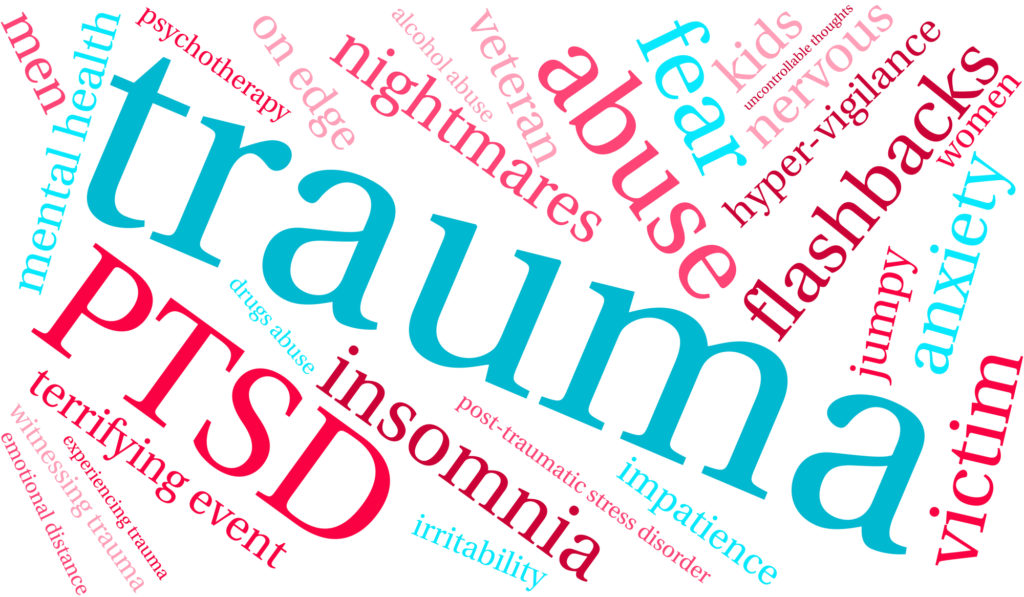Online Trauma Therapy & What To Know When Hiring a Trauma Therapy Specialist
For people suffering from past Trauma and are now seeking an expert Trauma Therapist for helping them heal from their past Traumatic experiences, Online Trauma Therapy can be one of the best solutions for getting personalised and specific mental health support for letting go of their Trauma.
But how many of us really know what an online trauma therapist does compare to a traditional talk therapist? And more importantly, what to look for when choosing to hire a specialist Trauma therapist?
First, let’s understand more about Trauma and its effects, then the more common types of Trauma Therapy.
What Is Trauma and Its Effects?
When we face a traumatic experience or PTSD, our nervous systems can go through a massive neurological shift which can alter our beliefs and behaviours and shape who we are as a person to the life that we can live.
Trauma can affect people in many different ways and this will depend on when the traumatic event happened in their life [age], what type of trauma happened [trauma type]and how this still affects you from emotions from that event.
One of the main effects of trauma is that it affects your brain. Brain injuries can occur after a traumatic experience. Many people become depressed after a trauma. Depression is a common reaction to trauma.
People with depression feel sad, lost and hopeless. These feelings can last for months or even years. If you feel depressed, talk to a friend or family member about it. Sometimes, talking to someone else can help to relieve some of your stress.
Do you feel like a victim?
Victims feel like their whole life has been ruined. If you feel like a victim, don’t blame yourself. It’s not your fault. If you were doing your best, you would not be the victim.
Think positive thoughts instead of negative ones. You can think about the good things that have happened to you. Think about your family and friends. You can try to get your life back to normal by keeping busy and exercising. Also, you can take some time off and rest.
What are the most common types of Trauma?
The most common types of trauma are Physical, Psychological and Emotional. Traumatic experiences can result in physical or mental disorders.
Emotional trauma can affect a person emotionally. For some, these emotional responses can manifest themselves as anxiety, insomnia, depression, or chronic stress, and often last for years and a lifetime if left untreated.
Emotional trauma includes the loss of a loved one, betrayal, divorce and death.
A trauma that causes physical damage to a body can cause mental or emotional disorders, and this has been a growing concern for many. Physical trauma includes accidents, illnesses, natural disasters and war.
Psychological trauma can include child abuse, bullying, domestic violence, rape, sexual abuse and neglect. Trauma can be a single incident or a repeated event over a long period of time.
Many people have also seen a connection between physical trauma and mental health, Trauma, including trauma experienced at an early age, can affect brain development and contribute to various emotional and physical symptoms.
Research shows that trauma in childhood can result in lower-than-normal IQ levels and contribute to other health conditions such as asthma, allergies, migraines, and gastrointestinal disorders, to name a few.
How is Trauma Mainly Treated?
The most common treatments for mental trauma are talk therapy and medications.
Talk therapy can help patients process the traumatic experience and learn to ‘cope’ with their emotions.
Medication helps with acute symptoms of depression or anxiety caused by Trauma but does not always address the core underlying causes.
These therapies often take several months to take effect or even a lifetime to overcome.
For the treatment of PTSD, there are many forms of therapy that exist. These include, but are not limited to, Cognitive Behavioral Therapy (CBT), Eye Movement Desensitization and Reprocessing (EMDR), Narrative Exposure Therapy (NET), Dialectical Behavior Therapy (DBT), and Group Therapy. A few of these are not very popular among people who suffer from PTSD. CBT, EMDR, and NET are considered evidence-based methods of treating PTSD, whereas DBT and Group Therapy are considered more alternative treatments. While some of these therapies take longer to implement than others, most of them are not very effective unless they’re used early.
A few of these therapies aren’t very popular but are more effective than others. One of the best ones to treat PTSD is called cognitive behavioral therapy (CBT).
It is a psychotherapeutic treatment that teaches people with post-traumatic stress disorder how to handle and prevent situations that can cause flashbacks or nightmares.
CBT is a combination of two different techniques. The first one is called cognitive restructuring. This is used to teach patients how to change their negative thinking patterns.
The second technique is called exposure therapy. In this method, people are taught to expose themselves to stimuli that they are afraid of in order to desensitize themselves.
Find out more about Cognitive Behavioural Therapy with Betterminds Counselling and how we may help you <<.
What Makes Betterminds Trauma Therapy More Effective Than Most?
When you first decide to seek therapy for your trauma, it can be hard to know where to look. There are a lot of therapists out there, and finding one that’s right for you can be a daunting task.
You do not necessarily need to seek out a mental health professional with a fancy master’s degree in psychology or even a bachelor’s degree in psychotherapy to gain the best results for your situation.
You do however need to find a professional Trauma therapist with certain skill sets and a deep understanding of human behaviour and how the mind operates, from a deep psychological level.
This is the core skill set that every good counsellor who specialised in Trauma Therapy should have and is the key to accurately unearthing a person’s situation and problems, to diagnose the core issues that are usually hidden deep in the unconscious mind that are causing these problems to arise on the surface level.
Often “traditional talk therapies” and how they work from a surface level won’t necessarily uncover this at all. It can also take years to unearth and resolve or they can just proscribe you pills to move you along to check things off sooner.
This is why you may have heard of friends or family members seeing a medical therapist for years and costing them thousands in the process with little or no results from their therapies.
Many psychologists and psychotherapists (but not all) follow a ‘one-size fits all’ checklist and some only follow a ‘text-based process’ with what they are told to follow in university, textbooks and the medical board.
It’s also very common for many “traditional medical therapists” to just proscribe medicine treatments for a quick fix of your symptoms and can just tick the boxes of what is required in their license quota.
The thought of being able to solve your trauma problems by taking a “magic white pill” every day can sound very appealing and feel like an easy way to resolve problems quickly.
“If only it was that easy!“
Physical, Psychological and Emotional Trauma can have many layers, and medication is not always a lasting cure and often only ‘band-aids‘ the core problem, that hasn’t yet been addressed.
Make no doubt medication may help ‘numb‘ certain symptoms, but it often comes with huge side effects.
Furthermore, it cannot solve the “deep underlying” problems that are often hidden deep down inside. Medication won’t fix your marriage or relationship, help you become the best version of yourself or give you insight into why you stilling living life feeling trapped and unhappy.
With that said, Trauma Therapy and Counselling can take time depending on how many layers you need to work on and how big those issues are.
Trauma Therapy is challenging as uncomfortable emotions and thoughts often arise as part of the healing process.
However, finding a Trauma Therapist that can provide long-lasting benefits beyond symptom relief is the long-term goal and is what you should always seek with working with a counsellor.
Proper Trauma Therapy guides you to release the negative feelings and emotions that are holding you back from the person you want to be and gives you the tools for creating your ideal life.
It’s wise to see counselling as a mental health maintenance tool for whatever life challenges are thrown your way, for better connection to others and for making sure you live your life to its full potential and be freer.
Online Trauma Therapy a Better Option For You?
Online Trauma Therapy has exploded as one of the most in-demand methods for treating Trauma online due to the current COVID-19 pandemic and its strict restrictions.
With the power of the internet, advanced technology, and easy-to-use online telehealth platforms, Online Trauma Therapy is easier than ever before for most busy people who are seeking specialised help to release their trauma.
Before Online Trauma Therapy was rarely available, people had to fly all around the country and even overseas to seek out a specialised Trauma Therapist.
People can now get online Trauma Therapy from the comfort of their homes at a time that works for them and their families.
Established and professional Trauma Therapists have now adapted their skillset to leveraging technology and platforms like Zoom & Skype.
Using online platforms like these allows Trauma Therapists to expand their therapy into telehealth services to tackle the current demands for Online Trauma Therapy.
What Do You Need For Online Trauma Therapy?
From a technological point of view, apart from occasional internet connection issues, virtual Trauma Therapy is relatively simple to navigate & use.
To conduct a successful Online Trauma Therapy session, there are only a few things you need to make this happen.
1. Appropriate lighting, 2. a stable internet connection, and 3. a Smart Phone or Laptop with a microphone and camera are all needed to make Online Trauma Therapy work for you.
How To Choose Your Ideal Online Trauma Therapist?
The trust, rapport & respect between you and your Trauma Therapist are paramount for the success of the trauma treatment.
You both need to be able to trust one another to open up and be 100% transparent. If you’re unable to open up and hold things back from your Trauma therapist, the treatment will be unsuccessful.
Given that choosing an Online Trauma Therapist is no longer bounded by location, you may find yourself overwhelmed with choice.
Six important things to consider before you decide to work with an online relationship therapist:
- Specialist vs Generalist – seek out a Trauma Therapist specialising in Trauma Therapy as their primary core service. Many counsellors and therapists cover a wide range of mental health issues & services, but the most successful Trauma Therapists will generally only focus on what areas they excel at. Most likely other counselling practices will just be a generalist and try to cover all areas to keep their practice busy but may lack in being a Trauma Therapy specialist.
- Proven Results – consider a Trauma Therapist who has a proven track record in successfully fixing Trauma. Ask about their past experience working with clients in a similar Traumatic situation to yours and the results from their therapies. Ideally, you will want to select a Therapist with many years of experience and who has been established in business locally for many years.
- Online Reviews – Research online reviews from past clients working with that therapist and counselling practice. A successful Trauma Therapist and the therapy practice will be proud to show their online reviews and talk about their proven track record in helping people overcome their trauma.
- Chat First Before Going Ahead – It’s essential that you and your therapist are best suited before going ahead. Professional Trauma Therapist also prefer to speak to new applicants before deciding to work with them to know they can get success. This will also allow you to make sure you are aligned with the therapist and their methods before embarking on this path. Request a free call here
- Cost Vs Investment – if your budget permits, view trauma therapy as an investment, NOT a cost. People who are serious about releasing their trauma to live a more fulfilled life should be MORE focused on what it WILL cost them if they continue to be effective by their Trauma. A highly successful and in-demand Trauma Therapist will not be cheap, nor would you want to put your life in the hands of a cheap therapist.
- Booking Availability – If you think you have found a successful Trauma Therapist, be prepared to wait for their next availability. The most sort after Trauma Therapists will be in high demand and will most likely have a waiting list. Don’t be discouraged or in a rush to just settle with any therapist or counsellor in hopes of being helped sooner. Inform you’re therapist of your situation and ask if they can open up their evening or weekends if things are at boiling point.
Conclusion:
When searching for a therapist for your trauma, it is important to consider several things such as those listed above. The main factor to consider when looking for a trauma specialist is their ability to treat post traumatic stress disorder (PTSD) and how long they’ve been in practice.
After taking some time to investigate a few Trauma Therapists, you should be able to determine whether they’re a good fit for your needs.
If you or someone you love is suffering from depression, anxiety, stress, addiction, or PTSD, we are here to help. We offer online therapy sessions that can be done from the comfort of your own home. In addition to helping you feel better and heal faster.





